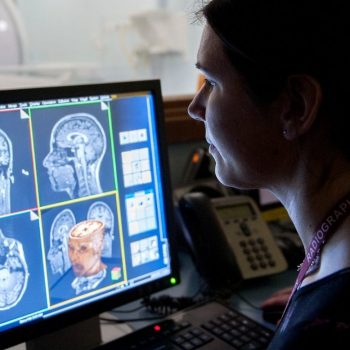Identifying the cause of Alzheimer’s progression in the brain
An international research team, led by the University of Cambridge and supported by the NIHR Cambridge BRC, investigated how Alzheimer’s disease progresses in the brain.
In Alzheimer’s disease, tau and another protein called amyloid-beta, build up in clumps known as aggregates, causing brain cells to die and the brain to shrink. This results in memory loss, personality changes and difficulty carrying out daily tasks.
Alzheimer’s disease develops over years and can be hard to study the progression. Researchers looked at post-mortem brain samples from Alzheimer’s patients, as well as brain PET (positron emission tomography) scans from patients who were at different stages of the disease, from mild impairment through to those with late-stage symptoms.
It was thought that Alzheimer’s develops from one part of the brain and then spreads, but researchers found aggregates in multiple regions of the brain and that trying to stop the spread in just one part will do little to slow down the disease.
This is the first time that human data has been used to understand the development of Alzheimer’s disease over time. The findings will give researchers a better understanding of Alzheimer’s and other neurological diseases and will be able to help develop new treatments.
Read the full news story from October 2021



